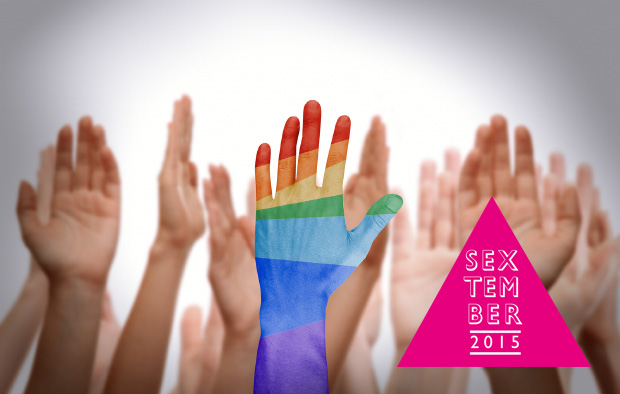SEXtember: New uni programs and initiatives to better serve LGBTIQ students
RECOGNISING a need to ensure the welfare of LGBTIQ students, new university programs and initiatives have been put in place to ensure students thrive at university and beyond. Amber Ziye Wang has more.
With more new international students arriving in Australia to study year in and year out, universities and other organisations have gone to various lengths to ensure that students of all races, creeds, sexual orientation and gender identity are well informed, kept safe and made to feel comfortable in the country they dub their second home.
Recent additions to university programs and resources for LGBTIQ students in particular have been produced to help prospective students, current students and graduates identify and overcome various forms of discrimination.
Prospective students and the Australian LGBTI University Guide

Prospective students can know what their education provider offers in terms of welfare towards LGBTIQ students thanks to the Australian LGBTI Uni Guide. | Photo: Wan Shing Lang.
Earlier this year, the launch of the Australian LGBTI University Guide meant LGBTIQ students, local or international, could be better informed about how well Australia’s higher education institutions would cater to their needs. The guide, launched by Human Rights Commissioner Tim Wilson in May, was developed as a collaboration between several community organisations including the NSW Gay and Lesbian Rights Lobby and Transgender Victoria.
International students have especially welcomed Australia’s first university guide for lesbian, gay, bisexual, transgender and intersex students.
“This is an important aspect that those not coming from western countries especially need to know,” American international student Brian Clauss said.
“It’s an additional source of support for those who might otherwise think that they are the marginalised or isolated — it could make a difference,” Chinese journalism student Ryan Yi said.
“The guide is an excellent resource for both current university students and those considering their future study options,” said Andrea Bozic, who is the Queer Department Officer at the University of Melbourne.
The Australian LGBTI University Guide uses a checklist to access universities’ performance against 15 points of criteria for LGBTI students which include health support, mandatory training for staff around LGBTI discrimination and other protective policies. This checklist is matched to the information made publicly available through the respective university and its student union websites, thus making it easier and more accessible for prospective LGBTI students to consider their study options at university before they come.
“[The] fact that some universities are moving beyond tolerance to active engagement with LGBTI students is very pleasing.” – Gay and Lesbian Rights Lobby Convenor, Justin Koonin
While most Australian universities had anti-discrimination policies in place, only one-in-five accurately reflected current legal protections for LGBTI people. Only a third of universities had mandatory training for existing staff in regards to equal opportunities involving LGBTI people; and specific sexual health advice was also generally lacking, according to the Australian Human Rights Commission.
Gay and Lesbian Rights Lobby Convenor Justin Koonin said universities had made progress on LGBTI issues, but there’s still room for considerable improvement in some areas.
“It is clear that some Australian universities are going to significant lengths to include LGBTI people and the fact that some universities are moving beyond tolerance to active engagement with LGBTI students is very pleasing,” Mr Koonin said.
“Others have a way to go, and we hope that this guide will provide a road map for these universities on where they could improve.”
In the Victorian chapter, top performers in the region include major universities like the University of Melbourne, RMIT and Monash University. In contrast, Australian Catholic University, with one of its campuses in Melbourne, does not have a society for LGBTI students, while no events are held specifically for them, or training provided for staff around LGBTI discrimination.
As of press time, earlier request for comments sent to Australian Catholic University remains unanswered.
Current and graduating students navigate sexuality and discrimination at workplace
This year has also seen the introduction of queer mentoring programs within universities.
Monash University recently became the second Victorian university to introduce a queer mentoring program for sexual and gender diverse students at work. Monash follows in the footsteps of similar programs undertaken at fellow Victorian universities, such as RMIT’s Pride Mentoring, which took off in March.
The Queer Mentoring Program looks to partner students that identify as LGBTI or queer with a professional who will provide guidance on how to navigate their sexuality in the workplace.
These programs hope to amend the shocking lack of specific university career assistance for LGBTI students who are more likely to face discrimination and unfair treatment at work because of their sexuality or gender identity.
One report found that homophobic jokes and harassment in the workplace were partly responsible for higher rates of mental health disorders in the LGBTI community. The same report also cites a 2010 study found among the 3134 young Australians sampled in its survey, 61 per cent admitted to experiencing verbal abuse because of their sexuality.
“For LGBTI students, it’s important for them to have role models,” – Michelle Maes, Co-Creator of Monash University’s Queer Mentoring Program
Based on the findings of the aforementioned Australian LGBTI Uni Guide, it was revealed RMIT was the only Victorian university that adequately provided employment advice specifically for LGBTI students.
Michelle Maes, co-creator of the Queer Mentoring Program at Monash, believes having queer connection in the workforce will be helpful.
“For LGBTI students, it’s important for them to have role models,” she told the Star Observer.
“To be able to see that there are people like them in the workplace, and that they are successful.”
Monash University’s Queer Mentoring Program has already begun for the year, and will run for six months.
Interested applicants from Monash University who wish to take part can register their interest by emailing queermentor@monash.edu.


